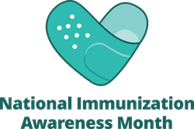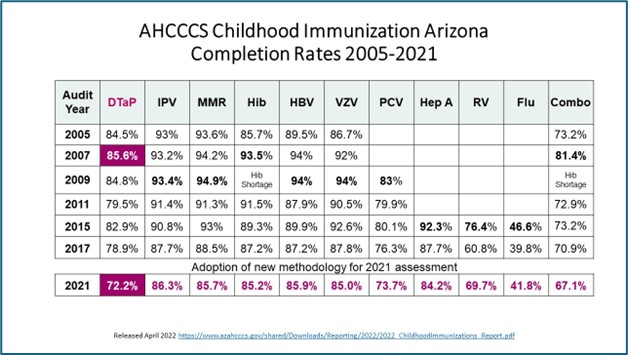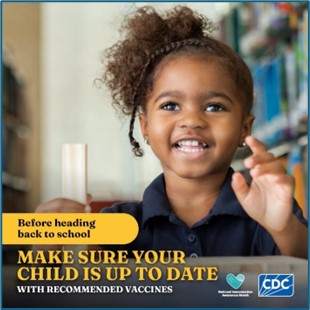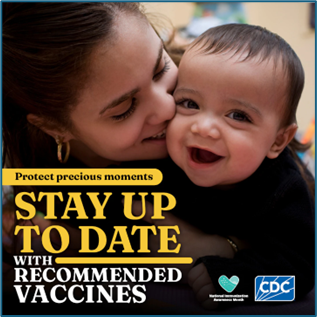Vaccination: A Big Success in Public Health
The global vaccine drives of the second half of the 20th century are one of humanity’s greatest achievements. Vaccination is the process of giving a vaccine while immunization is the result of it developing immunity in the person who got vaccinated. Ideally every vaccinated person should develop immunity, practically it depends upon the vaccine efficacy.

Immunization campaigns have enabled us to eradicate smallpox, defeat polio, and ensure more children survive and thrive than ever before. In just 5 decades we went from a world where the death of a child was something most parents feared, to a world where every child –– if vaccinated –– has a chance to survive and thrive.
Current Challenges: Globally
While immunization is one of the most successful public health interventions, coverage plateaued in the decade prior to COVID-19. The COVID-19 pandemic, associated disruptions, and vaccination efforts strained health systems in 2020 and 2021, resulting in dramatic setbacks. Data from 2023 show that performance has not yet returned to 2019 levels.
During 2023, about 84% of infants worldwide (108 million) received 3 doses of diphtheria-tetanus-pertussis (DTP3) vaccine, protecting them against infectious diseases that can cause serious illness and disability or be fatal. However, these global figures hide significant disparity among countries of different income strata, with low-income countries lagging behind.
Measles, because of its high transmissibility, acts as an early warning system, quickly exposing immunity gaps in the population. Still, 22.2 million children missed their routine first dose of measles, far from the 2019 level of 19.3 million.
In 2023, 14.5 million infants did not receive an initial dose of DTP vaccine, pointing to a lack of access to immunization and other health services, and an additional 6.5 million are partially vaccinated. Of the 21 million, just under 60% of these children live in 10 countries: Afghanistan, Angola, the Democratic Republic of Congo, Ethiopia, India, Indonesia, Nigeria, Pakistan, Sudan and Yemen.
Monitoring data at subnational levels is critical to helping countries prioritize and tailor vaccination strategies and operational plans to address immunization gaps and reach every person with life-saving vaccines.
Current Challenges In the USA:
After the COVID-19 pandemic started, we saw a concerning drop in childhood routine vaccinations. Provider vaccine orders for children through the Vaccines for Children (VFC) program decreased by 14% in 2020 after the national COVID-19 public health emergency was declared.
Sign of Improvement: Vaccination coverage has remained high and stable overall among young children, with coverage of more than 9 in 10 children for most recommended vaccines nationally
Improvement Needed: Vaccination coverage among certain groups declined since the start of the COVID-19 pandemic and may have not yet recovered. Combined 7-vaccine series coverage by age 24 months fell 4-5% among children living below poverty or in rural area.
Kindergarten vaccination coverage has steadily declined for all vaccines and in a majority of states over the past 2 school years to lowest levels in a decade
After the COVID-19 pandemic started, we saw a concerning drop in routine adolescent vaccinations. Provider orders for adolescent vaccines through the VFC program also decreased by approximately 25% for HPV, Men-ACWY, and Tdap year 2020 (October 2019-September 2020) as compared to the same time the previous year.
Current Challenges in Arizona
Nationally, 2-dose MMR coverage was 93.1% while it is only 89.9% in Arizona. In fact, Arizona has among the lowest childhood vaccination rates in the U.S. Arizona lost 50% of its VFC providers during the Ducey administration – going from 1,200 to 600, reducing access to vaccine and lowering childhood vaccination rates. Arizona now only has 6 VFC providers per 10,000 Medicaid eligible kids, while the national average is 24 providers per 10,000 Medicaid kids. This meaning Arizona only has 25% of the number of VFC providers per Medicaid enrolled kid compared with the national average.

Providers who left VFC over the last few years say they quit because of the administrative hassles imposed on them by the state over the last 8 years (ADHS not AHCCCS). At the top of the list of grievances is ADHS’ punitive practice of financially punishing providers who have vaccine wastage rates over 5% making participation financially difficult.
National Immunization Awareness Month

National Immunization Awareness Month is an annual observance held in August to highlight the importance of vaccination for people of all ages in the United States of America. Together, we can help raise awareness about the importance of vaccination and encourage people to talk to a healthcare provider they trust about staying up to date on their vaccinations. This is a similar effort to World Health Organization’s world immunization week.
The World Health Organization uses “World Immunization Week”, celebrated in the last week of April, to highlight the collective action needed and to promote the use of vaccines to protect people of all ages against disease. Through its convening power, WHO works with countries across the globe to raise awareness of the value of vaccines and immunization and ensures that governments obtain the necessary guidance and technical support to implement high quality immunization programs. The ultimate goal of World Immunization Week is for more people to be protected from vaccine-preventable diseases.
All staff in healthcare practices, including non-clinical staff, play important roles during National Immunization Awareness Month that is August in the USA.
- Engage in learning opportunities with CDC’s Immunization Education and Training courses.
- Make our practice a supportive space that welcomes vaccine questions and concerns from patients and parents.
- Use proven strategies to encourage parents and patients to stay up to date on vaccinations.
- Make immunization schedules easy for parents and patients to find by displaying them on our website.
- Share clear and accurate information about the latest vaccine recommendations, including COVID-19 vaccines and RSV vaccines

Routine Immunizations on Schedule for Everyone (RISE)
Let’s RISE is a CDC initiative to provide actionable strategies, resources, and data to support getting all Americans back on-schedule with their routine immunizations to protect everyone from vaccine-preventable disease and disability.

We at Asian Pacific Community in Action, join CDC’s initiative to reach out to the community through our community health workers, through our outreach field programs, through our mass media, print media and social media along with personal efforts to ensure that every Arizonian gets the vaccine that they deserve and persuade them if they have any resistance in a constructive and supportive dialogue with supporting resources. We also work at the Government level to ask and put forward the demands from the community that they richly deserve and are deprived of.






